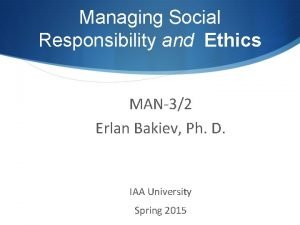PatientReported Outcomes in Evaluation of SocioEconomic Impact of

- Slides: 1

Patient-Reported Outcomes in Evaluation of Socio-Economic Impact of Myalgic Encephalomyelitis/Chronic Fatigue Syndrome (ME/CFS) to Society ID 23288 Diana Araja 1, Derek Pheby 2, Rachael Hunter 3, Elenka Brenna 4, Lara Gitto 5, Uldis Berkis 1, Asja Lunga 1, Andrejs Ivanovs 1 and Modra Murovska 1, (1) Riga Stradins University, Latvia, (2) Buckinghamshire New University, United Kingdom, (3) University College London, United Kingdom, (4) Università Cattolica del Sacro Cuore, Italy, (5) Università di Roma, Italy Results Myalgic Encephalomyelitis/Chronic Fatigue Syndrome (ME/CFS) is a poorly understood, serious, complex, multisystem disorder, characterized by symptoms lasting at least six months, with severe incapacitating fatigue not alleviated by rest, and other symptoms, many autonomic or cognitive in nature, including profound fatigue, cognitive dysfunction, sleep disturbances, muscle pain, postexertional malaise, which lead to substantial reductions in functional activity and quality of life. The health related quality of life induces the social-economic consequences for suffered persons’ and payers, and it is used as a measure in cost-effectiveness analyses. A study conducted in the UK covered 262 patients with ME/CFS and healthy controls. The analysis shows marked lower economic well-being of people with ME/CFS in comparison with healthy controls. Average adjusted income for participants with CFS/ME was £ 12, 242 (95% CI 10, 466 to 14, 018), but for healthy controls - £ 23, 126 (95% CI 18, 718 to 27, 534). Taking into account the prevalence of ME/CFS in the UK population, the total cost of illness was estimated at £ 1, 713 million per year. The study performed in Italy with 87 participants suffered by ME/CFS found that 23% were unemployed and 55% had an income less than € 15. 000 annually. Patients spend average € 210 monthly on medication and therapy. In Latvia the survey of 100 ME/CFS patients provides the initial assumptions on patients’ quality of life and socio-economic impact of this disease in Latvia (Fig. 1 and Fig. 2). Aim of the project Research is performed in framework of COST (European Cooperation in Science and Technology) Action 15111 EUROMENE (European Myalgic Encephalomyelitis/ Chronic Fatigue Syndrome (ME/CFS) Research Network) to investigate the opportunities to use the patient-reported outcomes in evaluation of quality of life and socio-economic impact of ME/CFS to society. Materials and methods To achieve the objectives of this research, a study based on the patient-reported survey has been carried out in the United Kingdom (UK), Italy and Latvia. The survey includes questions concerning the socio-economic consequences of the disease, particularly regard to health care costs, the loss of productivity, and the limitations in daily life. For data processing and analysis, the methods of economic analysis and statistical analysis are embraced. Prevalence - number of respondents Introduction 35 30 25 20 15 10 5 0 before illness during illness Value "1" Value "2" Value "3" Value "4" Value "5" Value "6" Value "7" Value "8" Value "9" Value "10" Fig. 1. Patients’ reported health-related quality of life before illness and during illness of CFS, in Latvia, 2019 ( « 1» - lowest value; « 10» - highest value) Prevalance - number of respondents 25 20 15 10 5 0 Usual activities Value "1" Value "2" Value "3" Self-care Value "4" Mobility Value "5" Value "6" Emotional state Value "7" Value "8" Physical state Value "9" Value "10" Fig. 2. CFS patients’ reported health-related quality of life in categories of «usual activities» , «self-care» , «mobility» , «emotional state» and «physical state» , in Latvia, 2019 ( « 1» - lowest value; « 10» - highest value) Patients’ reported health-related quality of life before illness and during illness of CFS shows the significant decrease in overall quality of life from dominate value « 9» to value « 6» . CFS patients’ reported health-related quality of life in categories of «usual activities» has dominant value « 6» ; «self-care» and «mobility» measured by dominated value « 3» ; but the most critical value « 1» is defined for categories of «emotional state» and «physical state» . However, the data of survey show, that the average income per household member in families of CFS patients is the same as overall statistical data in Latvia. Conclusions ME/CFS is a poorly understood, complex, multi-system disorder, characterised by difficulties of diagnostic, therefore the patient-reported outcomes is a significant tool to discover the undiagnosed patients and collect the data for evaluation of quality of life and socio-economic impact of ME/CFS.

